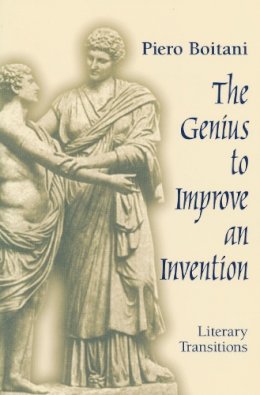
Stock image for illustration purposes only - book cover, edition or condition may vary.
Genius To Improve An Invention
Piero Boitani
€ 108.77
FREE Delivery in Ireland
Description for Genius To Improve An Invention
Hardcover. This volume derives its title from John Dryden's phrase for the British tendency to take up literary masterpieces from the past and "perfect" them. It adopts Dryden's notion as a framework for exploring ways in which classical and medieval texts have been rewritten by modern authors. Num Pages: 152 pages. BIC Classification: DSA; DSBB. Category: (P) Professional & Vocational; (UP) Postgraduate, Research & Scholarly; (UU) Undergraduate. Dimension: 230 x 152 x 19. Weight in Grams: 354.
The Genius to Improve an Invention derives its title from John Dryden’s phrase for the British tendency to take up literary masterpieces from the past and “perfect” them. Distinguished literary scholar Piero Boitani adopts Dryden’s notion as a framework for exploring ways in which classical and medieval texts, scenes, and themes have been rewritten by modern authors.
Boitani focuses on a concept of literary transition that takes into account both T.S. Eliot’s idea of “tradition and individual talent” and Harold Bloom’s “anxiety of influence.” In five elegant essays he examines a wide range of authors and texts, including Aeschylus, Sophocles, ... Read more
Show LessProduct Details
Format
Hardback
Publication date
2002
Publisher
University of Notre Dame Press
Condition
New
Number of Pages
208
Place of Publication
Notre Dame IN, United States
ISBN
9780268029500
SKU
V9780268029500
Shipping Time
Usually ships in 7 to 11 working days
Ref
99-1
About Piero Boitani
Piero Boitani is professor of comparative literature at the University of Rome, “La Sapienza.” He is the founding president of the European Society for English Studies and a fellow of the British Academy. In 2002, he was awarded the Feltrinelli Prize for Literary Criticism—Italy’s most prestigious literary award. Boitani is the author of numerous books, including The Shadow of Ulysses ... Read more
Reviews for Genius To Improve An Invention
“This book deserves the attention of all who are interested in the processes of literary continuity and change.” —Frank Kermode, King’s College, Cambridge University “The book’s linguistic vicissitudes are intriguingly appropriate to its topic, which is the (mostly) translingual commerce between literary texts in which the difference evident in imitation can be understood as an inspired improvement." —American Journal of ... Read more
